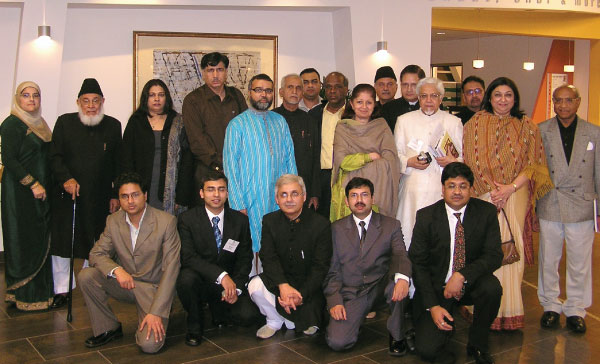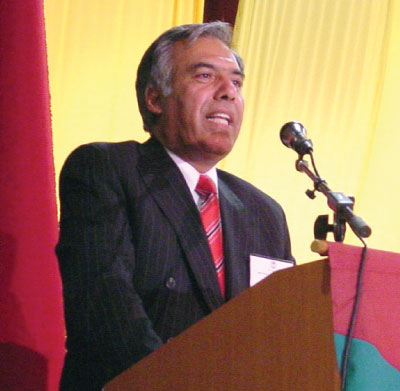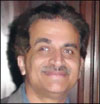|
|
|
ADVERTISEMENTS
|
|
|
TechDesi.com
A Desi Tech's Blog
PREMIUM
- The Siliconeer Mobile App is Here
- Siliconeer June 2013 Cover
- Avex Funding: Home Loans
- Incredible India: Visit Kerala
- Wells Fargo Bank: Tell
- Wells Fargo Bank: Financial Planning
- Brigade Group: Golden Triangle Bangalore Real Estate: Legion Real Estate
- Brigade Group: Golden Triangle Bangalore Real Estate: Legion Real Estate
- Dadi Pariwar USA Foundation
- SFR: Buying, Sellling Real Estate in Fremont, SF Bay Area, CA - Happy Living 4U - Realtor Ashok K. Gupta
- TechDESI-New Desi-Blog
- Bhindi Jewellers
- Sunnyvale Hindu Temple Chanchal Jagraata - Tuesday, June 4, 2013
- Law Offices of Mathew & George: Los Angeles: Personal Injury Experts
- Shivas Restaurant, Mountain View
- What's Your Story: Become a Fiction writer in Siliconeer
- ICBS: Tax Services for India and U.S.
- New India Bazar: Groceries: Father's Day Specials
- California Temple Schedules
- Ajit Dhanjani - Affordable Insurance - Life | Health and more in San Diego, Calif.
- Taste of India - Fremont
- MILAN Indian Cuisine, Milan Sweet Center, Milpitas
- Radhe Chaat, Santa Clara
- Indian Holiday Options: Summer Vacations in India
- Rashmi Bajoria, DDS: San Jose - Get FREE Electric Toothbrush
- Park Balluchi, Mountain View - Opening Soon!
- OneVision: Surveillance Systems, Camera, Security and more
- Red Kwali Malaysian, Thai and Singapore Cuisine, Milpitas
DISPLAY
CLASSIFIEDS
MULTIMEDIA VIDEO
|
|
|
|
|
|
COMMUNITY:
Proud Legacy: Sir Syed Day in the Bay Area
Poetry, a Mughlai dinner and some thoughtful reflections on how to address the acute disparity of wealth and education made Sir Syed Day marked by Aligarh University alumni a memorable event, writes Ras H. Siddiqui.

(Above): Volunteers and key supporters of the AMU Alumni Association of Northern California pose on Sir Syed Day at the India Community Center in Milpitas, Calif. [RAS H. SIDDIQUI photos]
Located in Northern India, Aligarh Muslim University is over 150 years old. In the San Francisco Bay Area the AMU Alumni Association of Northern California (www.amualumni.org) held its annual Sir Syed Day Banquet and International Mushaira the India Community Center in Milpitas, Calif. Nov. 17.
The evening started with a fine dinner from the Mughlai realm. After a recitation from the Holy Quran by Afzal Saeed Khan, Aftab Iqbal conducted the first half of the program. He expressed his admiration of Sir Syed: “Marnewale marte hain fana hote nahin.”
AMU Alumni of Northern California president Nihal Khan welcomed a full house. He reminded everyone that this was the 10th Anniversary of the association in Northern California. Nihal pointed to the Sir Syed Scholarship program that has thus far helped over 1,200 students. The program currently supports 140 students and will target over 200 next year. The Aligarh Education Endowment Fund was also highlighted (www.aeef.net). This served the needs of the underprivileged in India . The initial contribution to this fund by Drs. Kamil Hasan and Talat Hasan was appreciated. Nihal went on to explain that the fund was not exclusive to one community. His quote from the poet Majaz resonated in the hall as keynote speaker Dr. M. Humayon Qayoumi was introduced.

(Right): Keynote speaker Dr. M. Humayon Qayoumi, president of Cal State East Bay University.
Qayoumi, originally from Afghanistan, is currently CSU East Bay president. He quoted Urdu’s greatest poet Mirza Ghalib, and taking a page from Sir Syed’s rich contributions to Muslims over 150 years ago, brought us back to today. “How can we make education a liberating force?” he asked. From globalization in the flat world where benefits are not evenly distributed with millions facing food, water and sanitation shortages, the question of humankind as a whole being better off today remains unanswered. The keynote speech took the audience on quite a journey. From Maulana Azad who was also India’s first education minister, back to the Gupta empire in Indian history, to the Muslim contributions to the field of medicine, history and science and rational thinking via Ibne Sina and Al Beruni and India’s valuable contribution to mathematics, the basic discoveries paved the way for today’s communication (the Internet, You Tube etc). Yet in spite of the improved communication many people in America could still not point to Iraq and Afghanistan correctly on the world map and some could not do the same for the Pacific Ocean! He ended his keynote with a quote from the great Bengali poet Tagore.
The first part of the program ended with the traditional singing of the Tarana or anthem of Aligarh Muslim University: “Yeh mera chaman hai mera chaman, Mein apne chaman ka bulbul hoon…” written by Asrarul Haq Majaz Lucknawi.
The second part of the Sir Syed Day is the Urdu language Mushaira or poetry recital. Poets from India, Pakistan and the United States took part in this fine tapestry of talent. Abidullah Ghazi (Chicago) conducted the proceedings. Ghazi also commended the local community on the ICC, a fine facility.
“Humari tehzeeb aik numainda tehzeeb hai,” said Ghazi, referring to the cultures represented in Urdu, a South Asian language enriched by Turkish, Persian and Arabic from where its poetry derives much inspiration. And inspiration was not in short supply this evening as the first round of poetry began with Mahnaz Naqvi presenting “Mohabbat ke safar mein” and “Mila na mila.” Local software engineer Vasmi Abidi next attacked the issue of alienation in his verses. Ironically, according to him, in the age of global communication, email and the Internet, people do not know their own neighbors. His “Jis kay ghar say mila hai mera ghar” was really moving.
Renowned poet from Pakistan Zakia Ghazal literally stole the evening with her tarannum singing style. Zakia’s famous verses on Karachi are getting a great deal of notice recently. I will leave her “Koi rishte nahin to kiya haq hai aap ko faislah sunanay ka” to the readers to translate. Ghazal’s poetry etches a painfully clear portrait of events around her.
Urdu poetry is not without its humorous tangent. Khamakhah Hyderabadi (India ) is certainly a true representative of that craft. “Nek seerat ho to soorat ki zaroorat kiya hai,” (With honest intentions, who needs good looks?) was one example. Hyderabadi led the audience to rollicking laughter with his wit and sarcasm.
Mushaira conductor Abidullah Ghazi (Chicago) presented his work. “Loot gaye dar badar ho gaye, kuch idhar, kuch udhar ho gaye” spoke of broken connections. His “Waqt pe nazar rakhna, yeh badalta rehta hai, aaj meri baari hai, kal tumhari hai” referred to changing political conditions.
Rahat Indori (India) continued along similar lines. He began by saying: “Is chhotese Hindustan aur chhotese Pakistan ko salaam karta hoon.” His “Kiyoon hai” and “Aur hai” were very well received.
Presiding over the Mushaira, senior poet Hanif Akhgar proved his level of skill and proceeded to deliver both ghazals and nazms. “Wajood mera kahin bhi ho, meri rooh mere watan mein hai,” he said.
 Ras Hafiz Siddiqui is a South Asian American writer Ras Hafiz Siddiqui is a South Asian American writer
who lives in Sacramento, Calif.
|
|
|
|
|